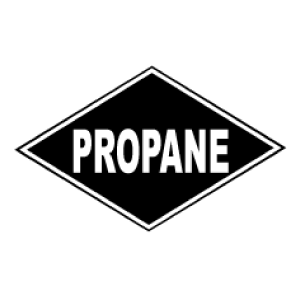Saluting automakers who support fuel choice
Some automakers are going beyond just letting you choose the color of your car, if you actually need an infotainment system, and whether or not you want seat-warmers (yes, duh). They’re letting you choose the fuel that it runs.
This is great news, and not just because freedom of choice is an American tradition. Letting consumers choose what fuels their vehicles will break oil’s monopoly on the transportation fuel market and create a jobs boom here in America, improve our national security, and enhance the quality of our air. While there is still room for improvement, we applaud the steps taken by some automakers to give consumers fuel choice and urge them to continue to expand these options.
Let’s take a look at some of those automakers that are offering at least two or more fuel options (not including gasoline):
Audi 

You might be surprised to hear it, but Audi actually has a decent fuel choice catalogue with multiple vehicles such as the A4, A5, and Q5 all capable of running on ethanol and their A3 e-tron series that uses electricity.
Chevrolet




Chevrolet’s best-selling pick-up truck, the Silverado, boasts multiple fuel options, and is capable of being configured to run CNG, LPG, biodiesel, or ethanol. They also have a number of vehicles like the Impala, Tahoe, and Equinox that can run ethanol. Their electric vehicle category is limited to two options, but the Bolt is the first economically priced long-range electric vehicle, and as we can attest the Volt is a great car all around.
Ford




Ford’s F-150 truck has been the best-selling vehicle in the United States for more than 30 years, and the best-selling pick-up truck for more than 40. And it doesn’t just run on gasoline — buyers can choose between compressed natural gas (CNG), propane (LPG), or ethanol fuel options as well. What’s more, for the heavy duty F-series models users have all those choices as well as biodiesel. They also have a select few vehicles such as Focus, Fusion, and C-Max that can run on electricity and a select few like the Escape and Explorer that can run on ethanol.
Hyundai 
![]()
With the Tucson, Hyundai was one of the first automakers to offer a hydrogen fuel cell vehicle. And with their newly announced Ioniq, Hyundai has stepped up their fuel choice game and is allowing consumers to choose between multiple fuel configurations for the same vehicle. Want a conventional hybrid car that gets a Prius-besting 58 miles per gallon? Check. Want an all-electric car that can get up to 124 miles on a single charge? Check. Can’t decide between one or the other? You don’t have to. The Ioniq will be available as a plug-in hybrid as well.
Mercedez-Benz

Like Audi, it may surprise you to learn that Mercedes-Benz offers multiple ethanol capable vehicles like the GLA250, CLA250, and GLE350, as well as electric offerings such as the B250e and C350e.
Ram


In the vein of Ford and Chevy, Ram’s flagship pick-up trucks, the 1500 and 2500 (the heavy duty version of the 1500) are available in multiple fuel configurations. The 1500 has ethanol and biodiesel options, while the 2500 loses the ethanol capability but gains a CNG option.
Toyota 

![]()
Similar to Hyundai, Toyota was one of the first companies to give consumers a hydrogen fuel choice with the Mirai. And with the Prius plug-in — which recently got an upgrade more than doubling its electric range — they also have an electric option for drivers. Not content to just provide two fuel choice options though, Toyota also has several ethanol capable vehicles like the Tundra and Sequoia.
All these advances are steps in the right direction, and those automakers deserve credit for thinking ahead to the future.
But we’d like to see them apply this strategy to more vehicles. Ideally, people would be able to choose the vehicle they wanted, and then the power source. Instead of being locked into a certain type of vehicle to have access to a certain fuel choice — e.g. people who want a CNG sedan or hydrogen truck are out of luck — people could choose both the vehicle and the fuel that makes the most sense for them.
True fuel choice would mean cars and truck being designed to run on whatever fuel makes sense for the consumer. This would create an environment where fuels are forced to compete, keeping prices perpetually low and more money in the pockets of American families. All the while creating new, permanent jobs — not susceptible to oil busts — around the country.
While that’s not the world we live in right now, these car companies are bringing us closer. We applaud their efforts while imploring them to do more.
Related posts:


This is very helpful!!
Thanks for sharing this article.The article is very informative. Its a good idea of using fuels that are not harming the environment.